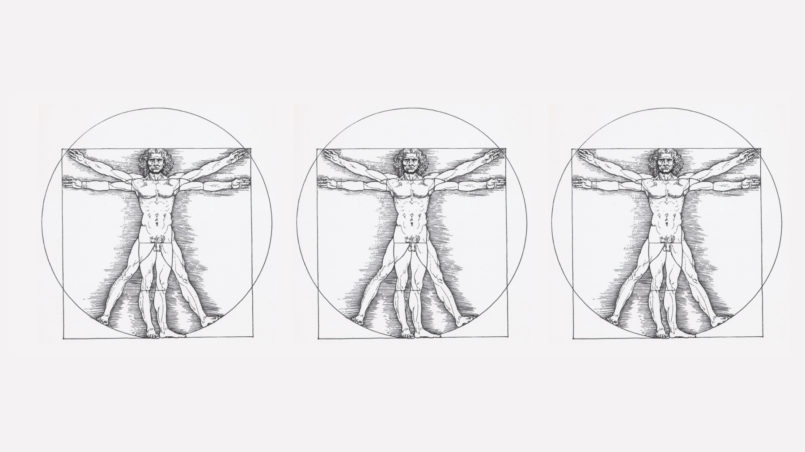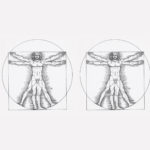The Principles of the Theory of Consciousness

There are two problems which I always had in reading about general human rights. And I say this without wishing to doubt their essential significance in any manner whatsoever.
First, the theory:
They appear, with all due respect, to be more well-intended than authoritative in their principle definition.
Second, the implementation:
Not even these desired, if at the same time possibly in need of improvement, principles of universal co-existence are usually strictly adhered to – which is particularly apparent on a global level.
In the following, I will dare to attempt a brief outline of a deeply profound, general human right as a right of freedom, as the minimum condition of all human co-existence: because the natural right of people is the right to freedom. And the human ability to be free requires […] appropriate social structures. It has always fascinated and intrigued me how many concrete postulates necessarily feature philosophical principles.
In the history of philosophy, the so-called Copernican Revolution by Immanuel Kant is usually regarded as the beginning of modern philosophy. In his “Critique of Pure Reason” he specifies the reflection on one’s own consciousness as the starting point of all critical (i.e. verifiable) philosophies.
In his words:”Das: Ich denke, muß alle meine Vorstellungen begleiten können.”(“That: I think has to be able to accompany all my thoughts”) This basically means that I recognise the things of this world as images in my consciousness.
This fundamental insight into the nature of the human consciousness has far-reaching consequences. First – but this is only mentioned as an aside in our context – we recognise humans as the “spiritual focus of the universe”, to quote Hegel from “Faith and Knowledge”.
Once again:
Theologically speaking, the human being is the greatest manifestation of God on earth and every religion which is not in its deepest sense humanistic misses its mark. Second, and this is decisive for us, the self-accompanying ability of the human consciousness justifies the human ability of freedom.
All human assets are a result of this one fudamental asset of self-accompaniment. And because I, at least implicitly, know that, at every moment of my life, my conduct and perceptions, it is me who lives, acts and perceives because I always see myself in this sense and accompany myself in my consciousness, I can regulate my actions myself. Self-awareness and self-accompaniment (the above-mentioned starting point of all critical philosophies) is freedom in practice!3
The unconditional dignity of humans is always also an unconditional end in itself. This means, as Immanuel Kant already recognised, that people are always to be regarded as an end in themselves and never to be used merely as a means. From a collective perspective, because we as people co-exist and live together with others from our very beginnings, this means that also the human community or society is to be regarded as an end in itself and, in theory, requires no further – external – end.
However, it further follows from the unconditional end in itself of every single human individual that every union of people with a certain common purpose (and that is also the end in itself of a community) can never absorb this inviolable significance and dignity of every single individual of the group for the common purpose. In principle, this means that there can never be, neither on the individual nor on the collective, social level, a prevalence or bias!
Now that we have explained the principles and given a brief practical view, the second part of this article will examine concrete practical postulates as the humanistic minimal conditions of all human co-existence.
This article is based for the most part on a scientific study, as yet unpublished, on “Aktualität und Grenzen der Kantischen Freiheitsphilosophie” (“Topicality and Limits of the Kantian Philosophy of Freedom”).
Literaturhinweise:
1 Johannes Heinrichs: Revolution der Demokratie. Eine konstruktive Bewusstseinsrevolution. Zweite, aktualisierte Auflage. Sankt Augustin 2014, S. 32.
2 Vgl. Johannes Heinrichs: Integrale Philosophie. Sankt Augustin 2014, S. 22ff.
3 Vgl. Heinrichs: Revolution der Demokratie, S. 78.
4 Heinrichs: Logik des Sozialen, S. 39.
Credits
| Image | Title | Author | License |
|---|---|---|---|
 |
Vitruvianischer_Mann | Hans Bernhard (Schnobby) | CC BY-SA 3.0 |

[…] of a “modern deeply humanistic freedom right as a general human right”, we presented the principles of the theory of consciousness from which starting point we now move on to the concrete practical postulates for all human […]